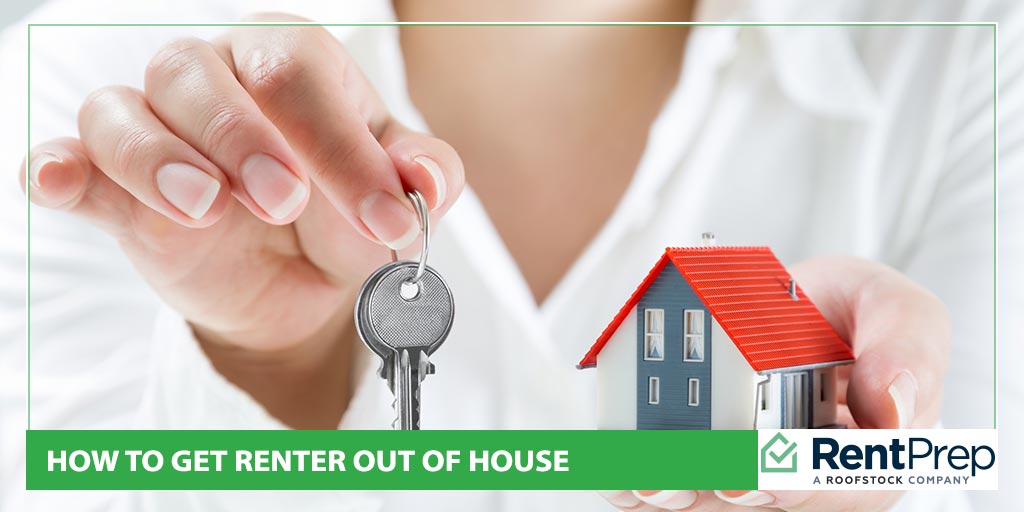
It’s widely agreed upon in the rental industry that the bottom line of your success often relies on your lease. Ensuring that this document is clear, thorough, and legal further ensures that you can profit while protecting your assets. For commercial landlords, an NNN, or triple net, lease is often considered the best-case scenario depending on the property type.
What is an NNN lease, and why are so many commercial properties rented under the terms of this type of lease?
Triple net leases are the agreements behind many business fronts, particularly when a large corporation will be utilizing the space for varied and specific services. Does that mean you should be converting all of your commercial leases to NNN leases? Not necessarily, but you should be aware of the benefits of this type of lease to ensure your bottom line is as powerful as possible.
Learn all about whether or not the NNN lease makes sense for your properties with RentPrep today!
A Table Of Contents On Triple Net Leases
The triple net lease is a type of commercial lease used in situations where the tenant will take on more responsibility than under a standard lease. Follow along with this outline of today’s NNN lease coverage:
- What Is A Triple Net Lease? (NNN)
- How A Triple Net Lease Works
- Triple Net Lease Properties: Are They Good Investments?
- FAQs On Triple Net Leases
- NNN Leases For Commercial Success
What Is A Triple Net Lease? (NNN)

Let’s get into the nitty gritty of triple net leases.
Triple net leases, also known as NNN leases, are lease agreements where the tenant takes on additional expenses. These expenses include real estate taxes, maintenance, and insurance costs. All of the expenses are paid in addition to rent and utilities, so the tenant is responsible for nearly all operating costs of the property.
This lease setup is very different from what is typically seen in a standard lease agreement where the landlord is usually responsible for most, if not all, of these expenses.
An NNN lease is written to contain three sets of “N”et operating costs:
- Real estate taxes
- Property insurance
- Operating expenses (also known as common area maintenance)
The operating expenses can cover everything from repairs to landscaping to snow removal. Each of these net costs depends on the type of property and the specific lease agreement in place.
When paying rent on an NNN lease, the lessee will pay the landlord the base rent and the NNN charge.
Types Of Net Leases
NNNs are a commercial property net lease type, but it is not the only type of net lease that a commercial landlord might use. There are also single net and double net leases.
Each net lease adds on another area of expenses. Single net leases include base rent and property taxes; double net leases add insurance; triple net wraps the Ns up with operating expenses.
Single net leases are not as common as double or triple leases, but they are used in some cases where the landlord is willing to lower rent in exchange for the tenant taking on some additional risk by paying the property taxes.
How Does A Triple Net Lease Work?
We’ve covered what a triple net lease is. Now, let’s talk more about how a triple net lease works in action. Landlords unfamiliar with this type of commercial lease might find it hard to imagine exactly what happens when an NNN lease is used.
Under an NNN lease, the lessee pays the rent, taxes, maintenance costs, expenses, insurance, and nearly everything else on the property. The landlord may be responsible for some communal areas, such as parking lots, but those will be specifically outlined in the lease if that is the case.
The tenant is responsible for managing all the repairs and upgrades done to the building during their tenancy. This additional cost is balanced in some ways by reduced rent. Tenants seeking this type of lease solution are also often looking for a situation where they can do hands-on management of their property. They prefer to be in charge of these things while managing their business.
There are multiple kinds of triple net leases, and different versions are used depending on the circumstances. Bondable net leases, for example, do not allow for early termination even when the maintenance costs are higher than the tenant thought they would be. On the flip side, the landlord cannot raise the rent in this type of lease unless specifically outlined in the agreement.
NNN Leases: Who’s Using Them?
NNN leases are a hot choice for property owners and investors that want to lease out their property without taking on all the risk of the businesses on the property. NNN leases afford lower risk than standard commercial leases.
NNN leases are most commonly used for buildings with significant cash flow, such as office buildings and restaurant chains. Similarly, a shopping mall might be paying rent through an NNN lease to the property owner.
NNN Leases: Landlord Responsibilities
There is no set standard to describe what the landlord is responsible for when it comes to a triple net lease. As with most leases, specific responsibilities will be outlined in an NNN lease. The tenant may be responsible for all infrastructure and maintenance, or the landlord may retain some common area maintenance tasks such as roof and parking lot maintenance.
Triple Net Lease Properties: Are They Good Investments?

There are benefits to both landlords and tenants regarding triple net leases, but that doesn’t mean this type of commercial lease is always the correct choice.
Commercial tenants may enjoy the freedom and flexibility of the lease while landlords enjoy the low risk. On the flip side, the cost can be high and variable for tenants, while landlords may find the vacancy cost of this type of property daunting.
Let’s talk more about the pros and cons of this type of investment lease precisely for landlords. What do you have to gain from using NNN leases when possible?
Pros Of Triple Net Lease
Triple net leases are a great way for landlords to create a stable and predictable income by utilizing tenants for any rental property related expenses. Let’s take a look at some of the benefits of triple net leases.
Reliable Income Source
Triple net leases are typically long-term leases that establish a monthly rent with specific rent increase increments. This means that you can collect a reliable income for 10, 15, or even 20 years, depending on the agreement. That type of stability is excellent to have as a landlord growing your business.
Tenant Controls Their Vision
Maintenance and upkeep of commercial spaces can be challenging when a business wants to break out of the box, do extensive remodels, and go out of its normal zone. While you can allow this flexibility, the free structure of NNN leases gives tenants the ability to do whatever they want without your involvement, direction, or management.
Limits Overhead Costs
Another huge benefit for landlords in NNN leases is that they have very few overhead costs. They may be responsible for some maintenance at the property, but the overhead cost is significantly reduced with triple net leases.
Passive Management Role
As the landlord of an NNN lease property, you take a less active role in the property’s management. The tenant handles the building, the maintenance, the taxes, the insurance, and most of the risk. This allows you to simply enjoy the benefits of your investment with limited management involvement.
Equity Building Investment
Tripe neat leases allow your business and portfolio to build equity. They are a low-risk investment option, and you can sell the property at the right time or hold onto it for long-term equity investment management.
Cons
Yikes! Triple net leases can and will fail if tenants do not meet their responsibilities or someone loses control over rental property maintenance and more.
Earnings Cap
Even if the market fluctuates, you can only change the rent based on what is agreed upon in the NNN lease. Changing property value cannot be accounted for immediately, and that can cap how much you can earn.
Vacancy Costs
If a tenant defaults, finishes out their lease, or otherwise has to leave the property, you may face considerable vacancy costs. Shopping malls and similar properties often rented through NNN leases are harder to fill, leading to trouble.
FAQs On Triple Net Leases
We’ve gathered some of the top questions on triple net leases (NNN). Let’s take a look.
What Does Landlord Pay In Triple Net Lease?
Typically a triple net lease lease states that a landlord does not pay or pays a very limited amount of operational expenses or capital expenditures during the lease term.
What Does Triple N Stand For?
The three Ns in a triple N lease stand for the three categories that operating expenses fall into for this type of commercial lease. The Ns specifically stand for:
- Property and real estate taxes
- Property and building insurance
- Operating expenses
These nets are the areas of coverage that are being added to a standard commercial lease. For example, a single net lease only has one of these Ns. Double net leases have two, and triple net leases have all three.
Remember that the specific terminology in a lease will ultimately determine the tenancy conditions regardless of the three Ns or the type of lease.
What Is The Difference Between CAM And NNN?
CAM stands for common area maintenance. NNN stands for triple net, a term used to cover the nets of property tax, insurance, and common area maintenance. While CAMs are typically part of the operating costs included under the NNN umbrella, the two terms are not synonymous.
CAMs are the expenses needed to cover commonly used areas of a property, such as trash, security maintenance, parking lot paving, and more. Shopping centers may split these costs between tenants, or they may be managed in a gross lease by the landlord.
However, in an NNN lease, CAMs are likely to be included in the tenant’s responsibilities unless otherwise specified.
What Are NNN Expenses?
Triple net leases are primarily based on the idea of triple net expenses. These NNN expenses are the real estate taxes, the building insurance, and the maintenance expenses. Landlords pay these expenses under standard leases, but tenants take on the costs in NNN leases in exchange for lower rent and more control over the property.
What Is The Difference Between A Triple Net Lease & A Gross Lease?
NNN leases are common in the commercial field, but they aren’t the only type of commercial lease out there. Another common type is a gross lease. This full-service lease sets the tenant up with base rent. In return, the tenant covers all operating expenses. This type of lease is often used for smaller shops renting out space in a more extensive shopping building.
How Do You Calculate An NNN Lease?
Triple net lease amounts can be calculated differently depending on what exactly is being covered, included, and more. You will usually collect the rent as one payment per month, but that amount might be divided into categories for accounting purses. The amount, in total, will be split between the base rent amount and the NNN amount.
The cost is calculated with an amount per square foot.
Imagine that the base rent is $20 per SF for a 1,000 SF space. The total cost would be $1,666 per month. For NNN, imagine the price is $10 per SF. The total NNN monthly cost would be $833. The tenant’s total lease rate would be $2,500 per month.
NNN Leases For Commercial Property Success
Triple net leases, typically used in commercial rental spaces, set up a system where the tenant takes on more control and expenses for the property than what is generally seen in a standard lease.
This is a great deal for both landlords and tenants in many cases because the tenant gets a lower base rent for taking on these expenses. In contrast, the landlord can take a hands-off approach while the property is being developed to the tenant’s tastes.
Remember that triple net leases are just one of many commercial lease options, and this option provides a lot of exciting benefits for landlords:
- Long-term occupancies
- Lower risk commercial investing
- Development without direct management
If all of these benefits and more align with what you want to do as a landlord, you might look into setting up future commercial leases as triple net leases.

